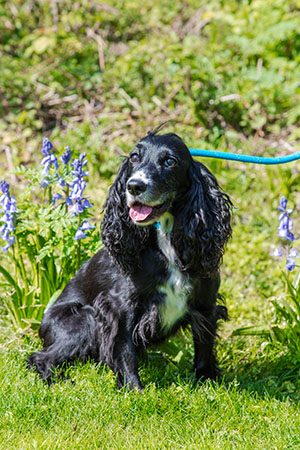At West Midlands Veterinary Referrals, our Soft Tissue Surgery team deal with a wide range of conditions in both dogs and cats, mainly concerning the head and neck, respiratory tract (airway), chest and abdomen.

Common conditions include:
- Ear, Nose and Throat: Total Ear Canal Ablation (TECA) and bulla osteotomy, laryngeal paralysis and tracheal collapse
- Urogenital: Congenital and acquired urinary incontinence, prostatic disease and cryptorchidism
- Oncological: Both hard and soft tissue tumours (cancers), including mast cell tumours, soft tissue sarcomas and oral tumours
- Gastrointestinal: Oesophageal foreign body removal, subtotal colectomy, colorectal surgery
- Wound Management and Reconstruction: Local/distant skin flaps and free skin grafting
- Vascular: Portosystemic shunts (abnormal blood vessels by-passing the liver)
- Cardiothoracic: Pericardiectomy, lung lobectomy, thymectomy
- Endocrine Surgery: Thyroidectomy and adrenalectomy
- Hernia/Rupture Surgery: Perineal hernia, diaphragmatic rupture and pericardioperitoneal diaphragmatic hernia.
The above condition require the following procedures:
- Complex Wound Reconstruction: Whether wounds are caused by trauma or by the removal of large tumours, there is an array of skin flaps and techniques that we can use to persuade skin to cover the gap.
- Diaphragmatic Rupture: This is common in cats that have been hit by cars. It is relatively easy to fix surgically. However, the real challenge is for the anaesthetist to breathe for the patient while the repair is carried out.
- Ear Canal surgery: Removing part or all of the external ear canal and sometimes part of the middle ear canal can make a huge difference to quality of life.
- Endoscopy: This allows examination and a number of diagnostic and therapeutic procedures in inaccessible spaces like the nose, throat, airway, oesophagus, stomach and upper small intestine, large bowel and bladder and urogenital tract.
- Extrahepatic PSS Occlusion: This is most often seen in young, small-breed dogs. “Dirty” blood from the intestines bypasses the liver through an abnormal blood vessel (the “shunt”) and mixes with the “clean” blood in the general circulation. This can result in brain problems and seizures. After appropriate medical stabilisation, surgically occluding the shunt is usually very rewarding and offers the patient the chance of a normal life.
- Laryngeal Tie-back and Airway Surgery: Airway surgery commonly involves shortening the soft palate, “tying back” tissue in the larynx to maintain a wider airway and creating temporary or permanent holes in the trachea (the “windpipe”).
- Maxillectomy/Mandibulectomy: Tumours of the mouth are relatively common. Removing a section of the jaw can often deliver an excellent resolution of problems and a surprisingly good cosmetic result as well!
- Neoplastic Surgery: The key to tumour removal is to know the nature of the tumour before operating, to adequately remove the tumour with a single surgery and then to give appropriate medical care post-operatively.
- Perineal Herniarraphy: Older dogs, typically uncastrated ones, can develop faecal and urinary straining with swelling around the anus. Perineal herniation involves the failure of the muscles of the pelvis to hold back the abdominal contents during straining. Hernia repair (accompanied by castration) is reasonably straightforward and usually resolves the straining and the swelling.
- Thyroidectomy: Overproduction of thyroid hormone is a very common problem in ageing cats. Once stabilised by medication, these cats usually do very well, indeed, with the removal of the overactive glands.
- Thoracotomy: There are a range of conditions involving the lungs, the oesophagus and even the heart that can require us to need to surgically enter the chest. Again, the skills of the anaesthetist are every bit as important as those of the surgeon.
- Urethrostomy: Cats and dogs, usually males, frequently suffer from an obstructed urethra, the tube that drains urine from the bladder. Surgery is often the only way to deal with these problems in the short and in the long term.
Our Fixed Price Packages for Soft Tissue Surgery
Our fixed-price packages include:
- Initial consultation
- Anaesthesia or sedation
- Surgery (including disposables)
- Pre and post-operative radiographs
- In-patient medications
- Discharge medications to go home with for the first week
- One overnight stay (hospitalisation)
- Re-checks and follow-up radiographs for three months following procedure.
|
Service | Price |
Extra's Included |
|---|---|---|
|
Anal Sac Resection: Unilateral |
£2,315 |
Lab tests for histology |
|
Anal Sac Resection: Bilateral |
£3,040 | |
| Biopsy: Tru-Cut First Sample | £940 |
Lab tests for histology |
| Biopsy: Punch / Additional Tru-Cut site | £125 | Lab tests for histology |
|
Cystotomy |
£2,135 | |
|
Cholecystectomy (gallbladder removal)
|
£2,660 | |
|
Diaphragmatic Hernia (Hernia repair) |
£2,465 | |
|
Laryngeal Tieback |
£2,285 | |
|
Mass Removal |
£2,045 - £3,360 | |
| Perineal Hernia: Unilateral | £2,500 | |
| Perineal Hernia: Bilateral | £3,730 | |
| Porto-systemic shunt | £2,480 | |
| Rectal Resection | £3,380 | |
| TECA (Total ear canal ablation): Unilateral | £2,580 | Lab tests for histology |
| TECA (Total ear canal ablation): Bilateral | £4,200 | |
| Thyroidectomy (feline) | £2,710 | Lab tests for histology |
| Tracheostomy | £2,135 | |
| Urethral Prolapse Correction | £2,500 | |
| Urethrostomy | £2,500 |

